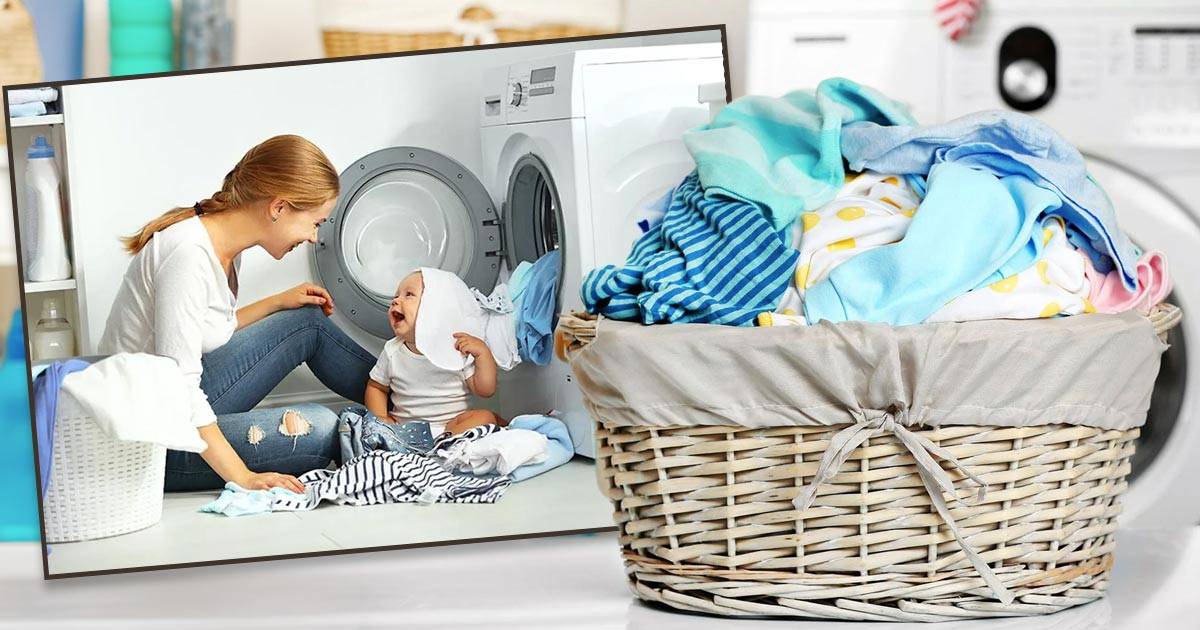7 Tips to Remember When Washing Your Baby’s Clothes

When it comes to washing your baby’s clothes, one question many parents ask is whether it’s okay to use regular detergent. The idea of using standard laundry products might seem convenient, butbaby clothes require special attention due to their delicate nature. In this blog, we’ll explore the best practices for washing baby clothes and discuss why choosing the right detergent is crucial for keeping your baby’s skin healthy and their clothes in top condition.
Can You Wash Baby Clothes Using Regular Detergent?
While it is possible to wash baby clothes with regular detergent, it’s not the ideal choice. Regular detergents often contain additives such as fragrances, dyes, and other chemicals that can irritate a baby’s sensitive skin. Babies have more delicate skin compared to adults, and they are more prone to skin conditions like eczema. These additives can sometimes trigger rashes or make existing skin issues worse.
Using regular detergent might not always result in immediate problems, but it does carry a risk. For the safety and comfort of your baby, it’s recommended to use a detergent specifically designed for infants. Baby laundry detergents are formulated to be gentle and are usually free from harsh chemicals, making them a safer option for your little one’s wardrobe.
Benefits of Using Baby Laundry Detergent
Opting for a baby-specific laundry detergent has several key benefits:
- Gentle on Skin: Baby laundry detergents are formulated without dyes or fragrances, which helps minimize the risk of skin irritation. This is especially important for babies with sensitive skin or conditions like eczema.
- Hypoallergenic: Many baby detergents are hypoallergenic, which means they are less likely to cause allergic reactions. This makes them suitable for babies who may have a higher sensitivity to allergens.
- Milder Formulas: These detergents are designed with milder formulas that clean effectively while avoiding the harsh chemicals found in regular detergents. This helps to maintain the softness and safety of baby clothes.
- Reduced Residue: Baby detergents are less likely to leave residues on clothing, which can be irritating to sensitive skin. Thorough rinsing helps ensure that no detergent residue remains on the fabric.
- Specially Formulated: Many baby detergents work well at lower temperatures, which is ideal for washing delicate baby clothes. This can help conserve energy while still providing a thorough clean.
Tips When Washing Your Baby’s Clothes
Taking proper care of your baby’s clothes ensures they remain clean, soft, and free from irritants. Here are some detailed tips to follow:
Wash Before Wear
It’s a good practice to wash new baby clothes before your baby wears them for the first time. New garments can contain residues from manufacturing processes, such as dyes and chemicals, which might cause irritation. Pre-washing helps remove these residues and ensures the clothes are safe for your baby to wear.
No Need to Clean Baby’s Clothes Separately
You generally don’t need to wash your baby’s clothes separately from the rest of your family’s laundry unless there are specific concerns. Using a gentle, baby-friendly detergent for all your laundry can simplify your routine while still being safe for your baby’s skin. This can be particularly convenient for busy parents.
Cloth Diapers to Be Washed Alone
If you use cloth diapers, it’s best to wash them separately from other laundry. Cloth diapers can become heavily soiled, and washing them alone helps ensure they are thoroughly cleaned and any potential contaminants are managed properly. Use a detergent that is effective for cloth diapers to maintain their absorbency and prevent irritation.
Tackle Stains Immediately
Treat stains on baby clothes as soon as they occur. Fresh stains are much easier to remove, and addressing them quickly can prevent them from setting in. Use a baby-safe stain remover or a bit of baby detergent to pre-treat stains before washing, which can help maintain the appearance of your baby’s clothing.
Be Extra Careful if Your Baby Has Eczema
If your baby has eczema or other skin conditions, extra care is needed when choosing laundry products. Opt for fragrance-free and dye-free detergents to avoid worsening the condition. Additionally, ensure that all detergent residues are thoroughly rinsed from the clothes, as even small amounts can irritate sensitive skin.
Read Care Labels Before Washing
Always check the care labels on baby clothes before washing. These labels provide important instructions on how to properly wash, dry, and care for the items. Following these guidelines helps maintain the quality and longevity of the clothes, ensuring they continue to be comfortable and safe for your baby.
Use the Right Water Temperature
When washing baby clothes, use the recommended water temperature for optimal results. Most items can be washed in warm water (around 30-40°C), which is effective for cleaning while being gentle on fabrics. For heavily soiled items or to kill germs, a higher temperature might be necessary, but avoid using excessively hot water to prevent damage to delicate fabrics.
Choosing the Best Detergent for Your Baby’s Clothes
While you can use regular detergent for washing baby clothes, choosing a detergent specifically designed for infants is generally the better option. Baby laundry detergents are formulated to be gentle on delicate skin, free from harsh chemicals, and effective at lower temperatures. By following the tips provided, you can ensure your baby’s clothes remain clean, soft, and safe, helping to keep your little one comfortable and happy. Making informed choices about laundry products not only helps protect your baby’s skin but also keeps their clothing in the best possible condition.
